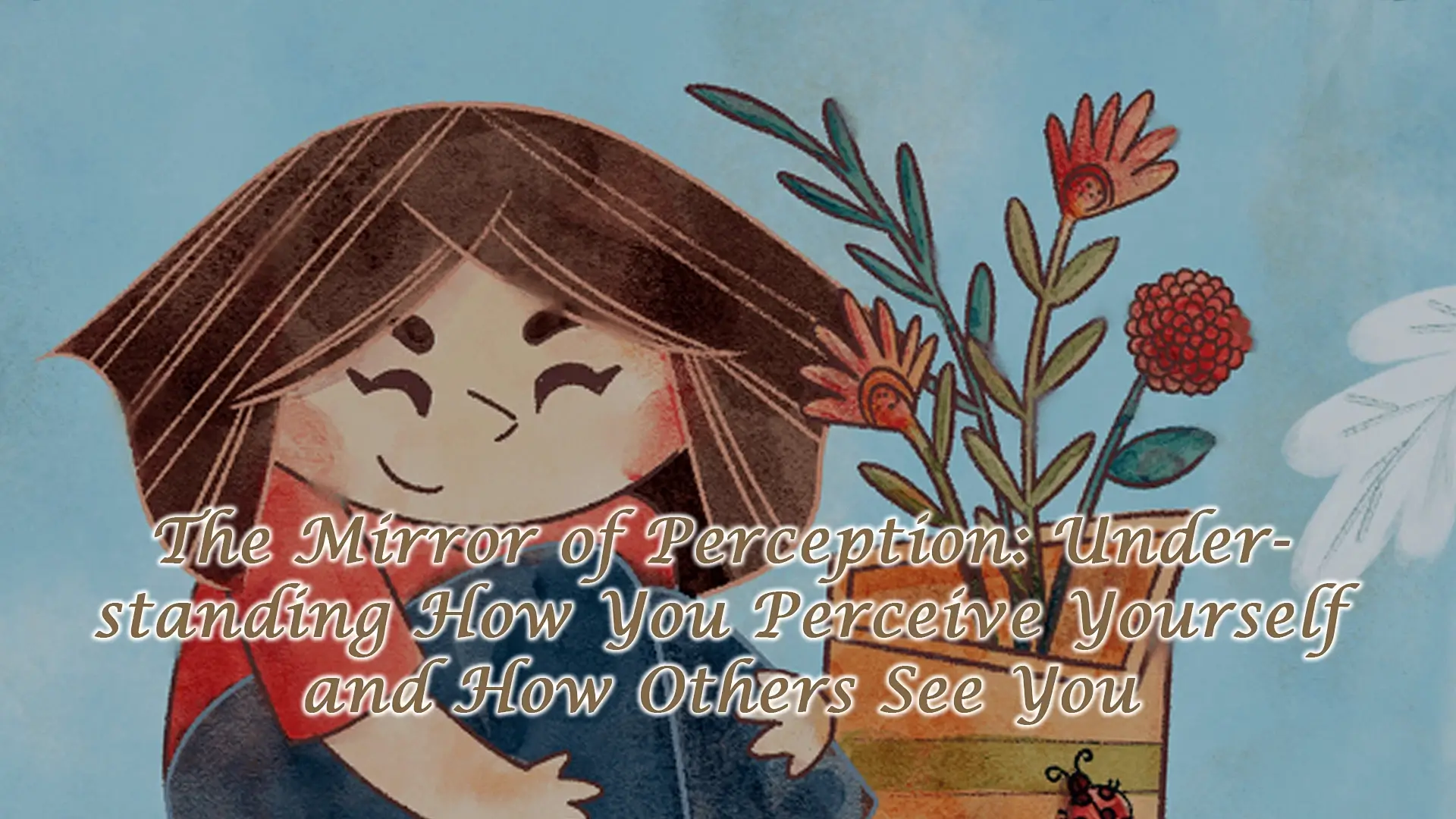The Mirror of Perception: Understanding How You Perceive Yourself and How Others See You
Human existence and the dynamics of self-perception and external judgments are woven into a complex and often mysterious narrative. How we perceive ourselves can determine the trajectory of our lives, influencing our decisions, relationships and overall well-being. At the same time, the lens through which others see us adds another layer to this intricate tapestry. In this study, we delve into the realms of self-awareness, introspection, and interpersonal dynamics to unravel the mystery of “how you perceive yourself” and the parallel narrative of how others perceive you.
Journey to Self-Discovery
It is a lifelong journey marked by moments of clarity, self-doubt and growth. “How you perceive yourself is a nuanced concept, deeply rooted in your thoughts, emotions and experiences. It includes not only your strengths and accomplishments, but also your vulnerabilities and self-doubts. Your self-perception acts as a mirror , reflecting your beliefs, values, and the narratives you create about your personality.
One of the fundamental factors influencing self-perception is introspection. Taking time to introspect and understand your thoughts and emotions is essential to developing a true understanding of yourself. This introspective process involves recognizing both positive and negative aspects, accepting imperfection, and cultivating self-compassion.
Moreover, social influence plays an important role in shaping self-perception. Cultural norms, social expectations, and media images can all contribute to the development of an idealized self-image. As individuals, we often internalize these external standards, which leads us to constantly compare ourselves to societal ideals.
The Influence of Self Perception on Personal Growth
Your self-perception serves as a compass to guide your choices and actions. A positive self-image can promote motivation, resilience, and a sense of purpose. Conversely, negative self-perception can be expressed in self-doubt, limiting beliefs and reluctance to take advantage of opportunities.
Understanding how you perceive yourself becomes a key factor in promoting personal growth. Adopting a growth mentality, which recognizes that abilities can be developed through dedication and hard work, can change your self-perception. This shift will allow you to view challenges as opportunities for learning and growth, which will promote resilience in the face of failure.
Moreover, the path of self-discovery involves accepting shortcomings and learning from failures. By reframing failures as valuable lessons, people can change their self-perception, cultivating a more resilient and optimistic mindset.

Navigating the Paradox of Others’ Perceptions
While self-perception is the internal compass, the external world offers a contrasting perspective through the lens of other people. “Questioning how others perceive you can be both interesting and challenging because it adds an additional layer to your personality. This external perspective is shaped by a variety of factors, including social context, personal experiences and cultural background.
The paradox lies in the tension between authenticity and social expectations. Finding the balance between maintaining authenticity and conforming to societal norms can be a delicate dance. Authenticity invites genuine connections and fosters the development of meaningful relationships, while conforming too much to external expectations can lead to a fragmented sense of self.
Understanding how others perceive you requires empathy and open communication. Feedback, both positive and constructive, provides valuable insight into how your actions and communications impact others. However, it is important to filter external opinions through the lens of authenticity, understanding that not all perceptions align with your true self.
The Interplay between Self-Perception and Interpersonal Dynamics
The intersection of self-perception and external perception significantly influences interpersonal relationships. Authenticity and self-awareness are the foundation of healthy connections because they allow people to authentically interact with others.
In relationships, transparent communication about “how you perceive yourself” promotes understanding and empathy. Sharing information about vulnerabilities can create a sense of intimacy, break down barriers, and build trust. In addition, being receptive to others’ points of view develops empathy, improving the quality of interactions.
Conflicts can arise when there is a discrepancy between self-perception and external perception. Misunderstandings can flourish, leading to strained relationships. In such cases, open communication becomes a bridge that allows people to reconcile their views and promote mutual understanding.
The Evolution of Perception
Perception, both internal and external, is not static. It changes with experience, personal growth, and changing circumstances. Accepting the variability of perception allows people to adapt to the complexities of life, overcoming difficulties with resilience and grace.
Cultivating a positive self-perception involves ongoing self-reflection and a commitment to personal development. Celebrating achievements, learning from failures, and embracing authenticity promote a healthy self-perception that serves as the basis for meaningful connections.
In the external realm, embracing diversity and developing empathy can bridge gaps in understanding. Recognizing each person’s unique journey helps create a more inclusive society where diverse perspectives are valued and celebrated.
And so
In the complex dance between how you perceive yourself and how others perceive you lies the essence of human connection and personal growth. The journey of self-discovery is an ongoing exploration marked by self-reflection, authenticity and resilience. Understanding the relationship between self-perception and external perspectives unlocks the potential to create authentic connections, develop empathy, and build a more compassionate and inclusive world. Just as a mirror reflects the visible and the invisible, the tapestry of perception weaves a complex tale of human experience.



The article effectively underscores the impact of societal norms and cultural influences on shaping our self-perception.
This piece highlights the importance of recognizing the subjectivity inherent in self-perception and how others perceive us.
The author skillfully navigates the psychological landscape of self-awareness and interpersonal dynamics.
This article beautifully delves into the intricacies of self-perception and the often contrasting perspectives others may have